Limor Chen runs the Delamina restaurant group in London with her husband, Amir. The group currently includes Delamina EAST in Shoreditch, Delamina Marylebone, and the most recent addition, Delamina Townhouse. Born in Tel Aviv to a family of Middle Eastern and European origin, Limor draws on that heritage and family recipes for the restaurant’s menu and the recipes in her cookbook, My Tel Aviv Table.
I asked Limor to choose five recipes from the book that best represent her style of cooking and to talk about her inspirations for them and what makes them so special to her. For each of the five dishes, I’ve included her comments, followed by the introduction and recipe as printed in the book. Together, they provide an introduction to her particular take on the food of Tel Aviv and the cuisine of Delamina restaurants.
Find out more at Delamina Kitchen and Limor Chen Art.
The Recipes
White & Red Quinoa with Roasted Sweet Potato, Almonds, Cranberries and a Raw Tahini & Grape Molasses Drizzle
Limor Chen says: ‘The combination of the healthy components of this salad always reminds me of my mother. She was always so appreciative of the food she cooked for us, and that very much has translated into how I cook myself, whether recipes for the restaurant or with my own family.
When I cook, I am always conscious of the health aspect of each dish as well as the vibrancy of flavours, and how pretty the dish looks. Maybe it’s the artist in me, but I really appreciate an enticing-looking dish (“first you eat with your eyes”). This dish is particularly vibrant; it has a lot of little elements that make it a celebration for the eyes. It’s very textural and super delicious.
There is a lot going on with the fluffy white quinoa, crunchy almonds, zesty pomegranate and soft sweet potato. The herbs add an overall earthiness, and the drizzle of nutty tahini and sweet molasses is a bonus. The whole dish is a celebration of colour, flavour and textures.
Initially, I created it for the restaurants. I wanted a salad, but something that is both light but with substance and not just an arrangement of lettuces. It’s my twist on tabouleh, but not as heavy since the grains are lighter. The quinoa gives that bit of substance. It is a gluten-free dish, suitable for vegans and can be a starter, main dish or side. It has become hugely popular at both our Marylebone and Shoreditch restaurants and so it stays on the menu. If we try to swap it for another, we get complaints.’
Recipe introduction from My Tel Aviv Table
This is my gluten-free, tabbouleh-inspired salad, combining herbs with quinoa instead of bulgur wheat. It has the same satisfying nutty and herby flavours of a traditional tabbouleh. I mix the white and red quinoa together, as the red adds complexity with its crunch and nutty flavour, which is balanced by the fluffier, milder white quinoa. But you can just use one type. This deliciously nutritious dish can be a side or a light vegan meal in its own right.
SERVES: 4
YOU WILL NEED:
1 small sweet potato (120g/4¼oz), peeled and cut into small cubes
2 tbsp olive oil
Pinch of salt
85g/3oz/½ cup white quinoa
85g/3oz/½ cup red quinoa
40g/1½oz/¼ cup almonds (or roasted almond flakes/slices)
90g/3¼oz rocket, finely chopped
40g/1½oz/½ cup parsley, finely chopped without the stalks
2 tbsp finely chopped coriander/ cilantro (stalks removed)
2 tbsp finely chopped mint leaves (stalks removed)
4 spring onions/scallions, finely chopped
2 medium tomatoes, diced
60g/2¼oz/½ cup dried cranberries
4 tbsp pomegranate seeds
A few mint leaves, to garnish
For the dressing
½ tsp salt
Pinch of coarse ground black pepper
½ tsp sumac
2 tbsp lemon juice
3 tbsp extra virgin olive oil
For the tahini and grape molasses drizzle
2 tbsp raw tahini
2 tbsp black grape molasses
METHOD:
Preheat the oven to 200°C/400°F/Gas 6.
In a roasting pan, mix the sweet potato cubes with the olive oil and cook in the oven for 30–40 minutes until nicely roasted.
Meanwhile, in a medium-size saucepan, bring 600ml/20fl oz/2½ cups water to the boil on a high heat with a pinch of salt and then add all the quinoa. Reduce the heat, cover and simmer for 20 minutes. Take off the heat and let it stand, covered, for 10 more minutes.
At the same time, spread the almonds out on a baking tray and roast in the oven for 10–12 minutes. Let them cool, then cut lengthways with a sharp knife.
Mix the dressing ingredients in a small bowl until well combined.
Put the rocket and all the herbs into a large bowl. Add the quinoa and mix. Add the spring onions/scallions, chopped tomatoes, cranberries and the dressing and mix until combined.
Spoon the quinoa mixture onto a serving plate. Top with the roasted sweet potato and almonds. Sprinkle the pomegranate seeds on top and drizzle with both the raw tahini and then the black grape molasses. Finally, garnish with mint leaves.
Whole Seabass with Herbs, Lime & Orange Zest
Limor says: ‘I inherited a love of fish from my father, who liked them in any shape or form, but especially a whole fish. I routinely make it in many different variations, using different fish, including sea bream. The lime and orange zest provide great freshness, and the combination of the herbs, especially the parsley, makes it light and fresh too. I don’t like a heavy fish dish in a big sauce. Whole grilled fish reminds me of home by the sea, outdoor grill cooking, the freshest fish, and simple preparations. This is ideal for sharing with family or in the restaurant and is visually very impressive on the plate.
I have been keen on cooking whole fish since we started the restaurants, but for years at home, I experimented with different fish and flavours for the family. One of my favourite spices is sumac, its zesty, lemony flavour goes well with fish. Cherry tomatoes are great; I like it when they burst on cooking. I have an early memory of eating a whole fish with tomatoes with my father-in-law and whenever I cook that way, I think of him.’
Recipe introduction from My Tel Aviv Table
Fish lovers are often divided between off or on the bone. I’m certainly the latter and won’t let anyone clean the fish for me at any restaurant – I enjoy doing it myself, and our kids are the same! I inherited my love of fish from my dad who liked them in any shape or form, including cured fish, herring and the very Eastern European gefilte fish, which are poached fishcakes traditionally eaten during the Passover festival. If you prefer to eat a whole fish but don’t like to deal with the bones, at our Delaminas, we serve it “canoed”, meaning the fish is deboned but kept whole with only a slit in the side.
SERVES: 2–4
YOU WILL NEED:
2 whole seabass (about 400g/ 14oz each)
4 slices of lime (sliced into circles)
Chopped parsley, to garnish
For the marinade
4 garlic cloves, crushed
5 tbsp roughly chopped parsley
4 tbsp olive oil
2 tsp orange zest
2 tsp lime zest
1 tbsp lemon juice
½ tsp sumac
1 tsp salt
½ tsp sweet paprika
For the dressing
2 tbsp lemon juice
1 tsp orange juice
½ tsp sumac
Pinch of salt
2 tbsp olive oil
2 tbsp garlic-infused oil (or ¼ tsp pureed garlic, see page 30)
METHOD:
Preheat the oven to 200°C/400°F/Gas 6 and line a baking tray with baking parchment.
Clean the fish and pat dry with paper towels. With a sharp knife, make three slits diagonally on each side of the fish.
In a small bowl, mix all the ingredients for the marinade. Rub the fish with a generous amount of the marinade, including inside, making sure you push it into the slits that you made.
Place the lime slices inside the fish, 2 slices each. Transfer the fish to the lined baking tray and cook in the oven for about 25 minutes (depending on the size of the fish). The fish should be cooked through but not too dry.
Meanwhile, mix together the ingredients for the dressing except the oils, then slowly add the oils while constantly whisking.
Place the fish on a serving plate and drizzle with the dressing, then garnish with some chopped parsley.
Chicken with Olives & Raisins
Limor says: ‘This was the first dish as a teenager that I created and cooked myself. I recall that I ate something similar in a restaurant and liked the combination of sweet and sour. It’s something that features a lot in my cooking, for example, adding dried fruit to savoury.’
Recipe introduction from My Tel Aviv Table
My husband loves chicken, and this is certainly a household favourite. The combination of olives and raisins results in a delicate balance of sweet and savoury flavours. Once cooked, the chicken absorbs the sauce and gets slightly darker and very tender. I recommend serving it with white rice. I have made this dish probably more than any other, and it never disappoints.
SERVES: 6–8
YOU WILL NEED:
1 tbsp olive oil
1 large onion, diced
6 garlic cloves, chopped
6 tbsp tomato purée/paste
1½ tbsp white wine vinegar
375ml/13fl oz/1½ cups water
1½ tsp ground cumin
1 tsp sweet paprika
½ tsp chilli flakes
8 skinless chicken thighs
150g/5½oz/1½ cups pitted green olives
200g/7oz/ 1½ cups black raisins
METHOD:
Heat the olive oil in a medium-size, heavy saucepan over a medium heat. Sauté the onion for 2–3 minutes until translucent, then add the garlic for 1–2 minutes. Once the onion and garlic are slightly golden, add the tomato purée/paste, vinegar and water and give it a good mix. Add the cumin, paprika and chilli flakes. Increase the heat to high and bring to the boil.
Place the chicken in the sauce and let it continue to bubble for about 5 minutes.
Add the olives and raisins, bring back to the boil for a few more minutes, then reduce the heat to low, cover and simmer covered for 1½ hours. The chicken will be very tender and dark and will have absorbed the flavours. Serve with rice.
Dad’s Koftas with Tahini & Pomegranate Seeds
Limor says: ‘My father was a very good cook who favoured interesting, delicious combinations of flavours, often mixing dried fruits with herbs and spices, including cumin. He had a very good palate and invented dishes that always worked. He was an inspiration to me about cooking, and always said, “Use your intuition, just follow your instinct, and create on the spot”.
He was well-known for his barbecues, and especially for making koftas which were full of interesting herbs and spices and oozing with flavour. We always drooled over them. This meant summer to me with tahini, pitta bread and a chopped salad.
I never had to cook it myself since my father was the expert. I loved it so much that I wanted to put the koftas in my book and also showcase them in our restaurants. It is an iconic dish for me. I decided to call them ‘Dad’s koftas’ in my book and ‘Mosha’s Koftas’ on the restaurant menus where they’ve been featured since day one.
To my family’s disappointment, I don’t cook them as much at home, but they are obviously available in the restaurants. But I am thinking that at the next big family gathering at home, it will be lovely to cook it as a tribute to my father, who actually really enjoys my version of his koftas whenever we see each other.
Recipe introduction from My Tel Aviv Table
My dad was a barbecue king back in the day, famous for his homemade kofta mix. As soon as summer started, he found any excuse to host abundant barbecues. Everything he grilled was made from scratch with aromatic flavours and cooked to perfection, but his koftas were the real star of the show. The kofta dish at Delamina is inspired by those famous barbecues. He never followed a recipe, so I had to make it a few times until I felt the flavours were close enough and I was happy for the chefs to prepare it. The lamb can be replaced with minced/ground beef.
MAKES: ABOUT 18 KOFTAS
YOU WILL NEED:
For the koftas:
500g/1lb 2oz minced/ground lamb
1 large onion, finely diced or grated
4 tbsp finely chopped coriander/ cilantro
4 tbsp finely chopped parsley, plus extra for garnish
2 tbsp finely chopped dill
1½ tsp crushed garlic
½ tsp freshly ground black pepper
1 tsp ground turmeric
1 tsp ground cumin
1 tsp ground coriander
1 tsp ground cinnamon
1 tsp baharat
1½ tsp pul biber (Aleppo) chilli flakes
To serve
Tahini (see page 30 of My Tel Aviv Table for the recipe or use ready made)
3 tbsp extra virgin olive oil
Pul biber (Aleppo) chilli flakes
Pomegranate seeds
Chopped parsley
4 warm fluffy pitta bread, cut into quarters
3 tbsp roasted pine nuts (optional)
METHOD:
Place all the ingredients for the koftas in a large bowl and mix until well combined. This should be done preferably by hand as it’s the best way to incorporate everything evenly together. (This can be done with gloves.)
Place a small plate with a bit of oil next to you while making the koftas.
Using a tablespoon, take some of the kofta mixture and shape it with your hands – first make a round shape, then flatten it out slightly. Dipping your fingers and palms in the oil from time to time will prevent the minced/ground meat mixture from sticking to your hands. Repeat until all the koftas are made.
Ideally cook the koftas on a barbecue, otherwise use a griddle/grill pan brushed with a splash of oil on a medium-high heat. When hot, cook the koftas for about 2 minutes on each side, or longer if you like your koftas well-done.
Spread some tahini on a serving plate with the back of a spoon, place the koftas on top, drizzle with the olive oil, then sprinkle with pul biber, pomegranate seeds, chopped parsley and pine nuts if you’d like. Scoop with warm pitta bread.
Grandma’s Poppy Seed & Orange Cookies
Limor says: ‘I only made the cookies when I was planning my cookbook, because I wanted a special tribute to my grandmother. She always made cookies when we visited her or she came to our home. They are not difficult to make but they mean a lot to me. And they are delicious, very more-ish.
I was the eldest grandchild and very close to my grandmother. My daughter has a sweet tooth, and when she comes to visit, I bake these cookies, which she loves, and I know that she, too, is very conscious of the memories.’
Recipe introduction from My Tel Aviv Table
My grandma’s visits to Tel Aviv were always a special occasion for my sisters and me. She lived far away in a kibbutz, Ashdot Yaakov, near the Lake of Galilee, which meant she stayed with us for a few days. She always brought several large and colourful tins filled with delicious homemade cookies that we nicknamed (for obvious reasons) “salties” and “sweeties”; we enjoyed these long after she returned back home. During one of our visits to the kibbutz, she let me help her make these cookies. I remember entering this huge kitchen that catered for all 300 members of the community (kibbutzs are social communes where all meals are taken communally in a large dining hall); everything was super-sized, with huge pots and pans – I felt like a Lilliputian from Gulliver’s Travels. It was special baking these cookies with her, and I cherish those memories. My favourite type was the poppy seed ones and although no one kept the recipe, I’ve tried to recreate them here and have come pretty close to the flavour and texture I loved so much.’
MAKES: about 40 cookies
YOU WILL NEED:
150g/5½oz unsalted butter
90g/3¼oz/½ cup soft brown sugar
3 tbsp fresh orange juice
2 tbsp vegetable oil
1 tsp orange zest
1 tsp vanilla extract
1 egg
300g/10½oz/2 cups plain/ all-purpose flour
1 tsp baking powder
2 tbsp poppy seeds
2 tbsp soft brown sugar, for rolling
METHOD:
Preheat the oven to 160°C/320°F/Gas 3½ and line a large baking tray with baking parchment.
In a large bowl, beat the butter and sugar with an electric mixer until light and fluffy. Add the orange juice, oil, orange zest, vanilla and egg and mix again until well combined.
In a separate bowl, mix the flour and baking powder.
Add the flour to the butter and orange mixture and combine, then add the poppy seeds and mix one more time. Cover with cling film/plastic wrap and chill in the refrigerator for 1 hour.
Take half the amount and roll with your hands into a cylinder/log shape about 5cm/2in wide.
Sprinkle the brown sugar on the lined baking tray and roll the cookie dough in the sugar. Using a sharp knife, slice the dough into cookies 5mm/¼in thick. Spread them out on the baking tray. Repeat with the second half of the cookie mix.
Bake in the oven for 20–25 minutes until they are golden brown all over. Let them cool for a few minutes and then enjoy or store in an airtight container.
All recipes taken from My Tel Aviv Table by Limor Chen, published by Nourish, £28.
Use the following affiliate link to buy the book and support Smashed: buy the book.




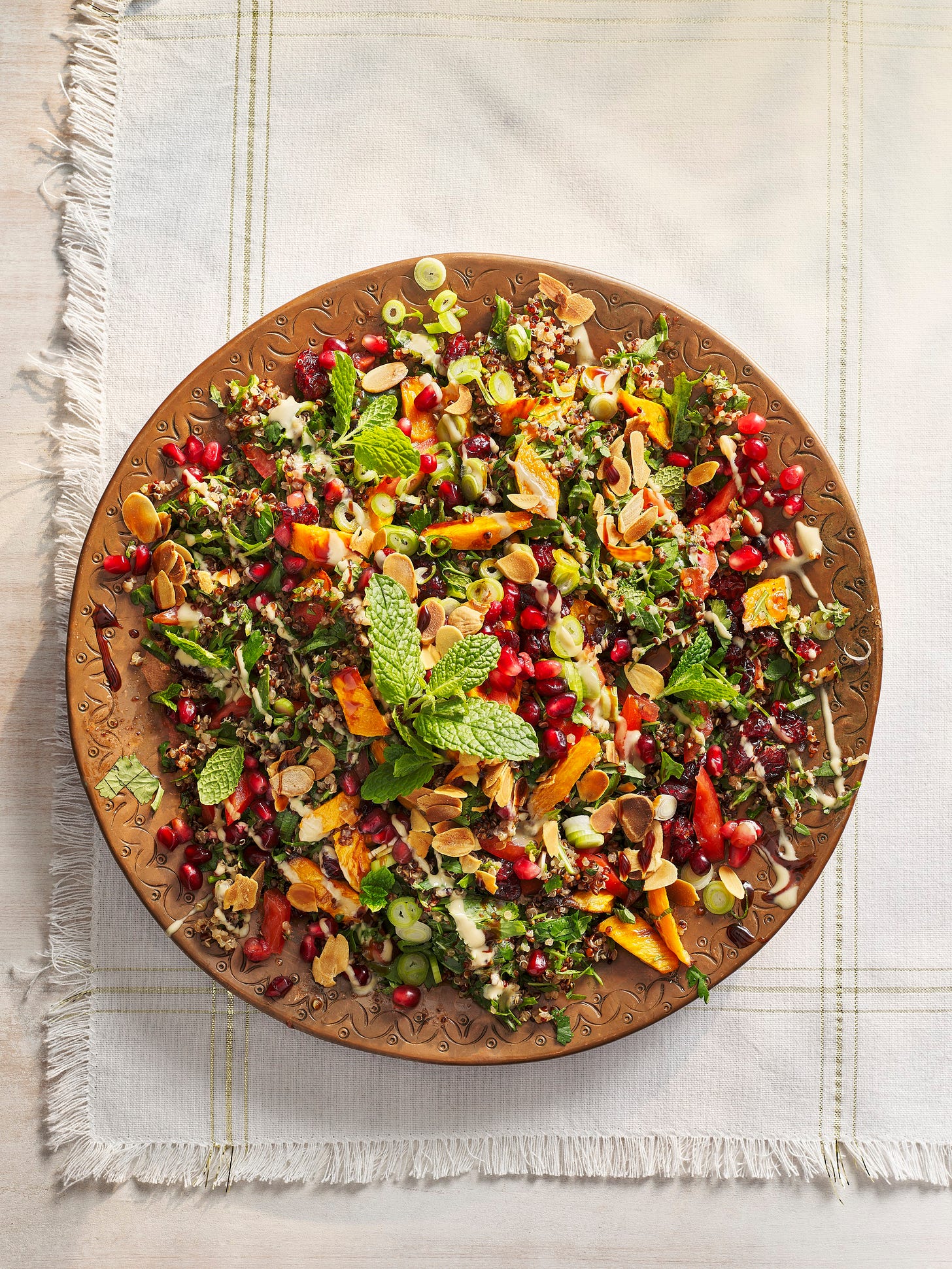
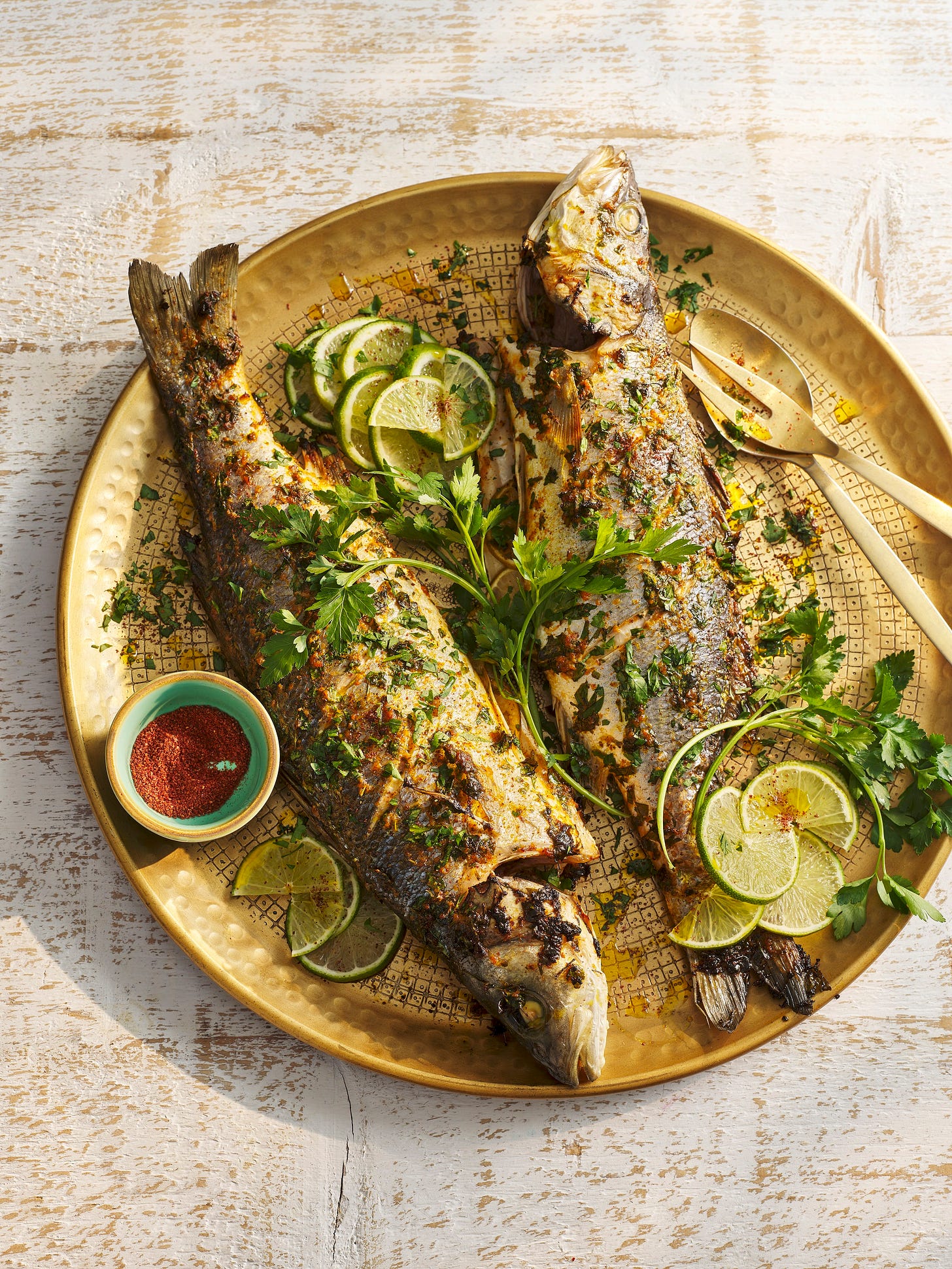
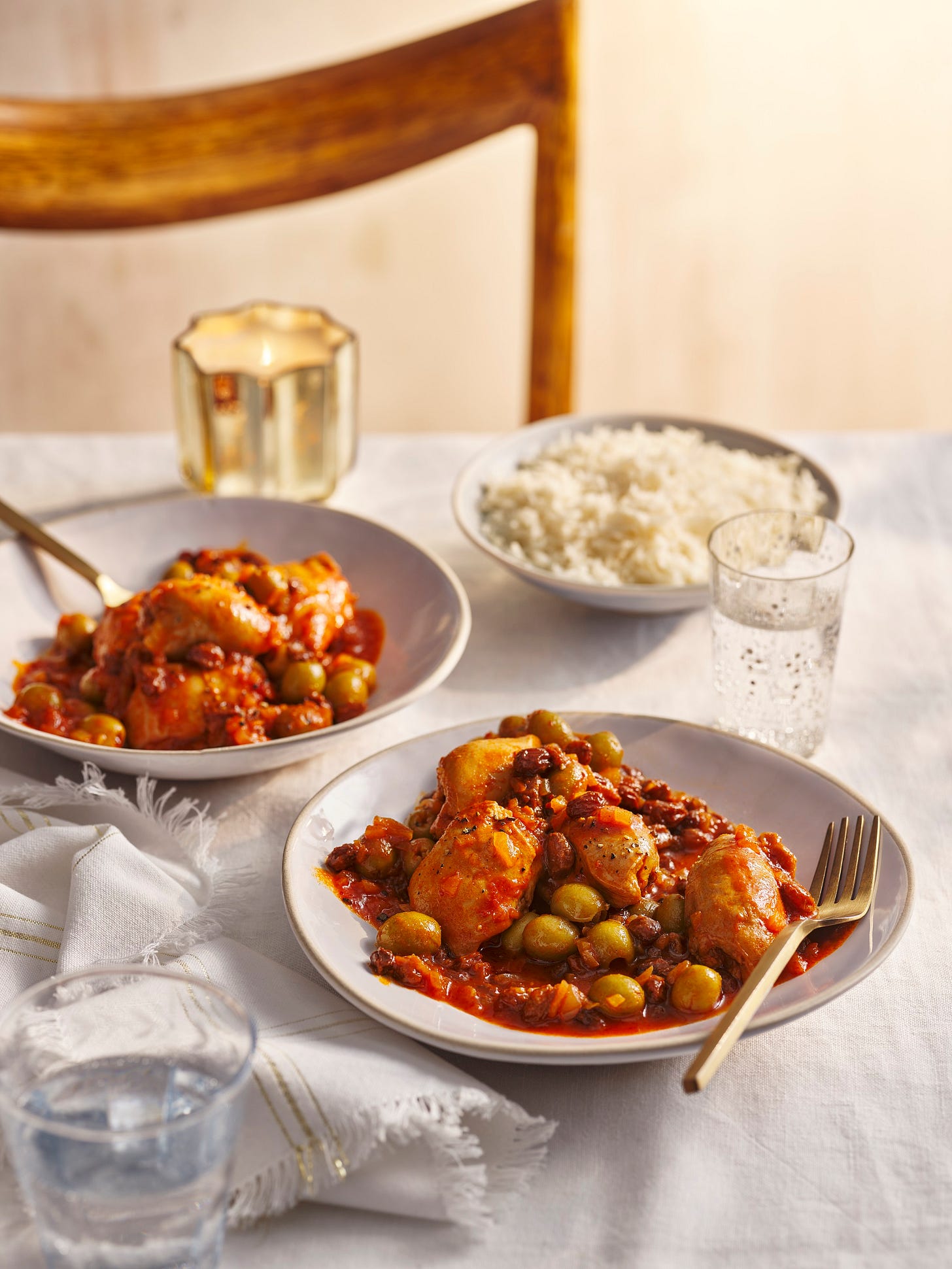
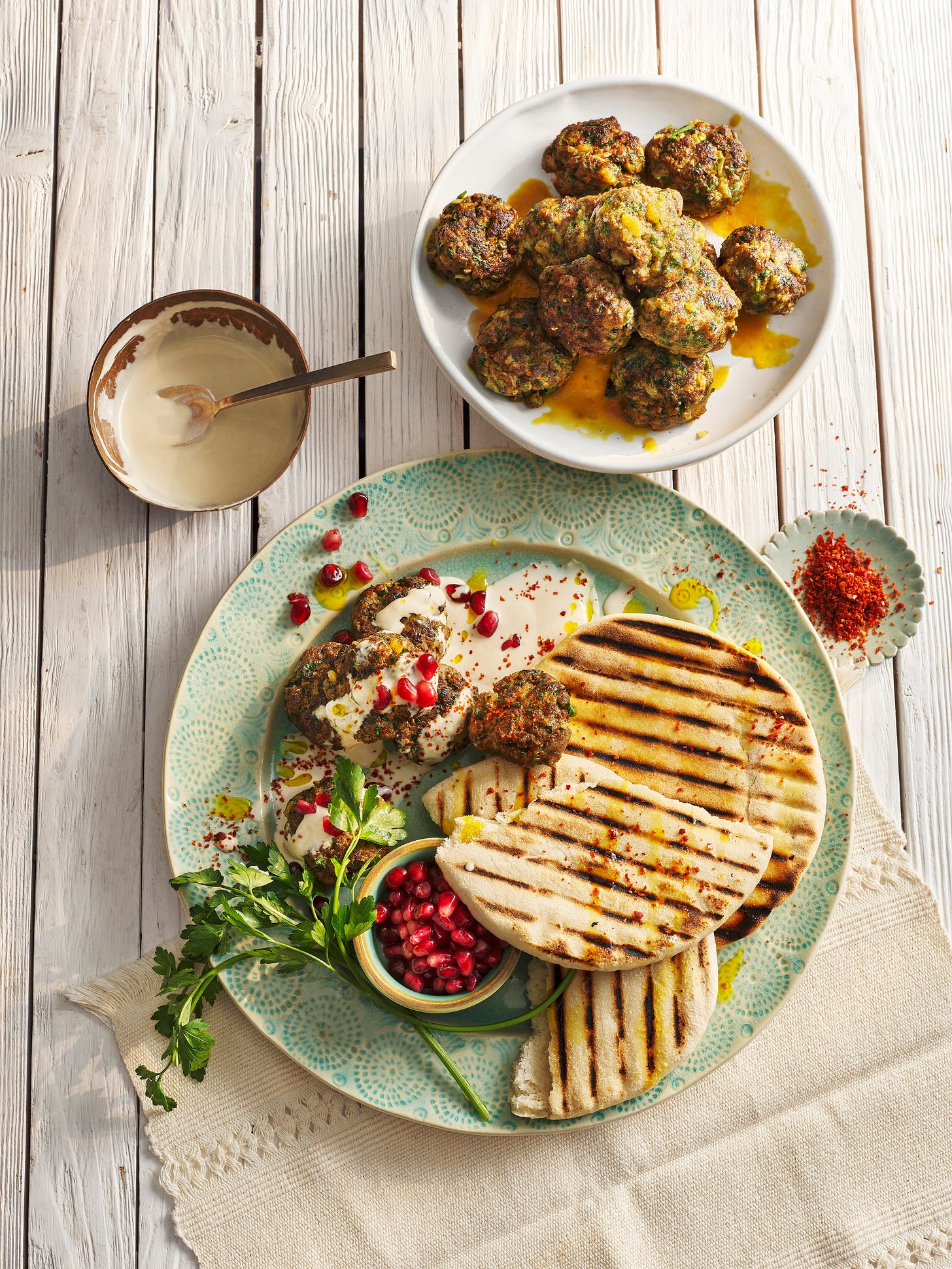

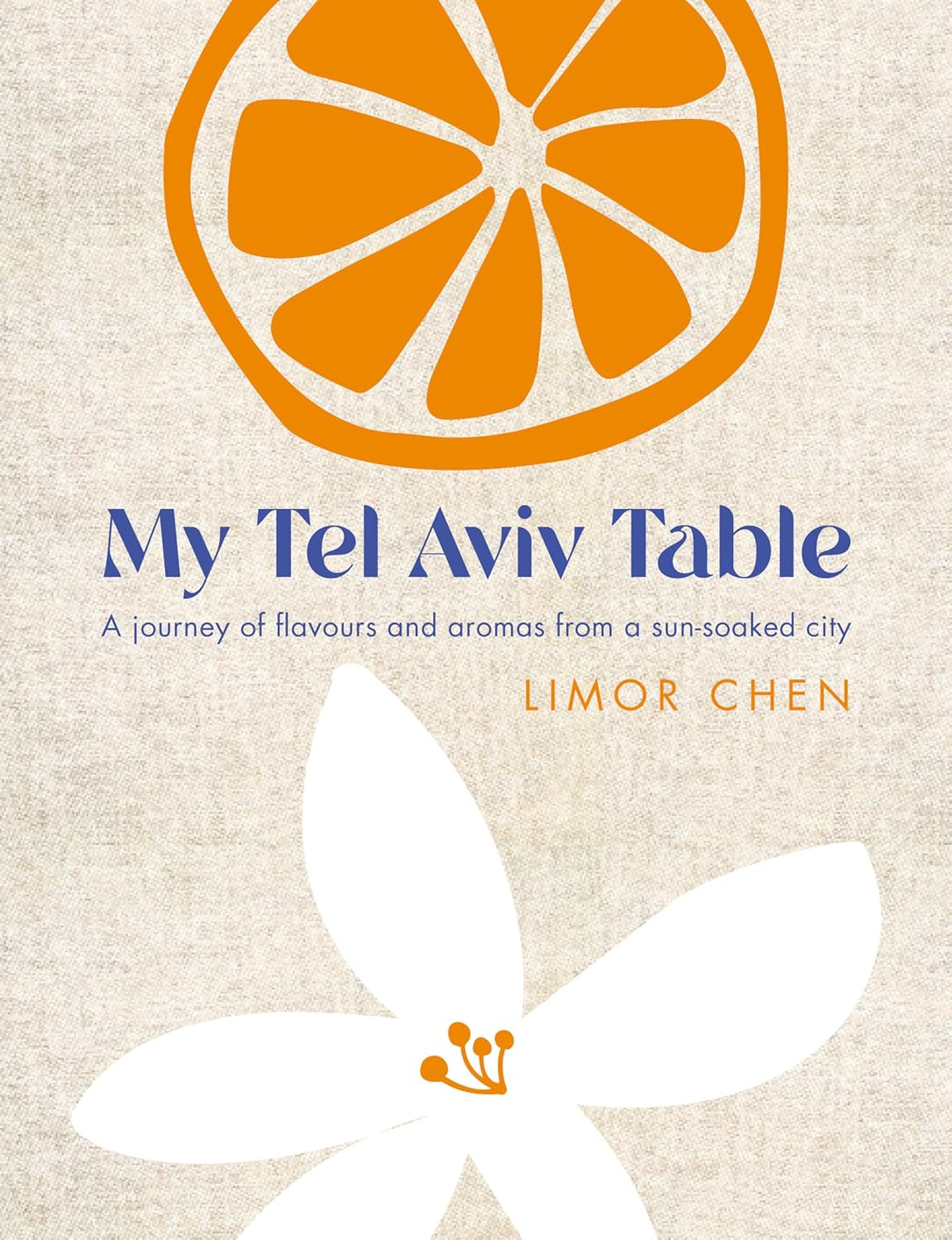
Wow look at those colors!